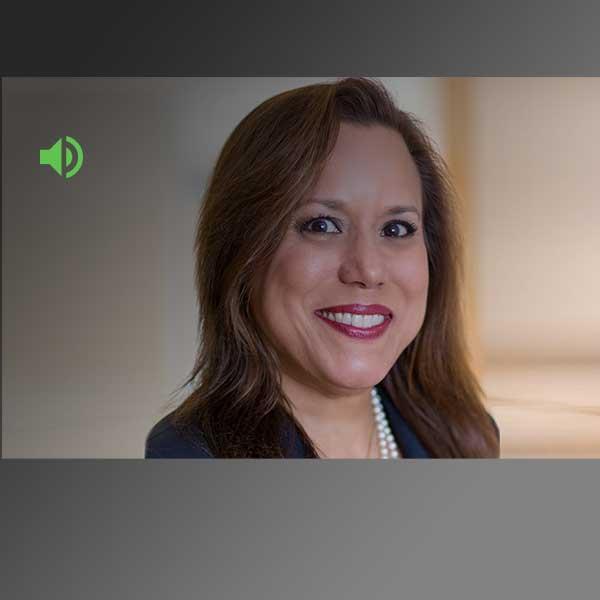Returning to the office has become trickier than anticipated with the spread of the Delta variant of COVID-19. What do ║┌┴¤═°'s latest data reveal about U.S. employees' attitudes -- and what steps can employers take amid this uncertainty? ║┌┴¤═°'s Lydia Saad, director of U.S. social research, and Ben Wigert, director of research and strategy for workplace management, join the podcast to break down the latest in our research.
Below is a full transcript of the conversation, including time stamps. Full audio is posted above.
Mohamed Younis 00:07
I'm Mohamed Younis, and this is the ║┌┴¤═° Podcast. In this episode, just as everyone was rushing back to the office or loathing to do so, the Delta virus threw us a curveball. And this persistent remote-work scenario sticks with us till today. Lydia Saad is our director of U.S. social research, and Ben Wigert is our director of research for workplace management. Lydia, Ben, welcome to the podcast.
Lydia Saad 00:30
It's great to be here and great topic.
Ben Wigert 00:32
Mo, thanks for having us.
Mohamed Younis 00:33
So let me start, maybe with you, Lydia. What is the current state of remote working right now? We've been through such a roller coaster over the past year-plus, with people staying home then hoping to rush back after the vaccine and kind of some people went back; some people didn't. As it stands today, what is the current state of people remotely working, and has it changed much lately?
Lydia Saad 00:57
So there's many lenses through which to answer that question. Just very broadly, if we're looking at all U.S. employees, people who work for an employer and are working full time, just to give you the quick visual, you can think of about five in 10 -- half of Americans -- are working from home to some extent. Of those, about three in 10 are doing it exclusively and two in 10 part of the time, to some degree. That's as of today, and that's been pretty constant the past three months. Prior to that it had been ebbing down a bit from the point where last year, we had like a clear majority of people working from home and more than 35% working exclusively from home. So that's come down a bit, and we particularly saw it dip after mass vaccinations took hold in the spring. More people felt comfortable going back to work. But since then, it's been pretty flat
Mohamed Younis 01:49
Lydia, we saw a huge, anticipated return to the office earlier in the summer, but it quickly fizzled out due to concerns over the Delta variant. What do our data tell us about people's actual preferences for where they want to work?
Lydia Saad 02:02
Right. So yeah, there was anticipation. There was lots of talk of companies setting Labor Day as an inflection point for changing -- either having everyone come back all at once or gradually. I don't think that workers, most workers are disappointed that this has gotten delayed. Of course, nobody wants the pandemic to get worse and all of that. But here's the show-stopper number: In our latest polling, when we ask workers their preferences for working remotely or going back to the office, 91% of employees who are currently working from home to any degree want to continue working from home to some degree, either exclusively or hybrid. How much they want to work from home pretty much relates to how much they are now. So 70% of those who are only working remotely part of the time now want to continue that kind of hybrid arrangement going forward, while the rest are kind of split between wanting to go back to the office full time or work from home full time. Interestingly, those who are working from home full time now, just half of them want to maintain that status. The other half are kind of interested in getting back hybrid. So people are interested in getting back, but they're not interested in getting back full time, for sure.
Mohamed Younis 03:14
That represents a pretty serious demand, if you will, for at least a hybrid setup and people working from home part of the time. Ben, what has your research shown in terms of what's driving this desire? What are people identifying as the most salient benefits to working from home or working remotely?
Ben Wigert 03:33
Yeah, that's a great question, Mohammed. So we ask people specifically why they would prefer working hybrid versus exclusively remote versus fully on site. And when people preferred hybrid or exclusive remote, they actually gave the same exact top three reasons for wanting that work arrangement. If they wanted hybrid or exclusive working from home, they wanted that because they wanted to avoid the commute time. They wanted that work location because it made them feel like they had better wellbeing and it gave them the, the needed flexibility to balance work and life. So the top three reasons for those two groups were exactly the same. If we drill down a little further, those who wanted to work hybrid also said they liked that option because it allowed them to work in person with their coworkers sometimes, and they felt more productive. If we expanded the list for the people who wanted to work exclusively from home, they also mentioned it helped them feel more productive, but they uniquely mentioned that they had fewer distractions at home.
Ben Wigert 04:35
So when you kind of put that together, it shows you the value of spending time at home and that it gives you more focused time to do independent work. And it shows you the value of hybrid and spending some time in person because you get to interact and connect and collaborate with other people. What was interesting, we also asked people why they preferred working on site if that was their preference. And they, too, like the other group, said that they felt more productive and had better wellbeing on site. So there's a certain degree of autonomy and personal preference where people just like working in certain locations more, but those on site also said that they had better access to technology; they could collaborate better; and they felt more connected to their organization. So the commonality here is really when you have any time on site, whether you're full time on site or part time on the site, you feel more connected; you can collaborate better; you have your resources right there. When you're working fully from home, you have fewer distractions, more focused time. So what's kind of exciting about this new hybrid world we're headed toward is you really can get the best of both worlds, and people can figure out the work environment that works best for them.
Mohamed Younis 05:43
We've been talking a lot about the perspective of the employees. Ben, you also spend a lot of your time with employers, trying to figure out what to do about this reality we're now living -- how much to push or not push; encourage, not encourage people to come back into the office. Obviously it always depends on the industry you're in, the nature of work you do. But when you think about commute, wellbeing, life-family balance, those are really hard things to argue against as an employer. Talk to us about some of the challenges employers have been facing and what are the best, smartest ones doing right now.
Ben Wigert 06:21
So I think you nailed it, that employees and employers tend to agree that allowing some flexibility to work from home or remotely is good for people -- because flexibility tends to be good for people. The challenge has really become in determining how to make that hybrid strategy work, given the various jobs out there and industries and individual preferences. So people agree on the need for flexibility, but the challenge is, How do we agree, how do we agree on doing this going forward? So what we're finding in our research is there isn't a magic number of days in the office, and there's not necessarily a magic schedule that specifies when we're in the office together. That's something that has to be determined by the team and what works best for them.
Ben Wigert 07:10
We do generally see that people tend to prefer 2 to 3 days in the office. That's a popular preference. But even, even that frequency does vary by the type of job and type of team. Where people really don't agree at all is what the policy should be. About four in 10 people want full autonomy in deciding when they come to work and why; and then about six in 10 want a coordinated effort. But those who want a coordinated effort can't agree on how that's done. They are evenly split across whether they want the employee to tell them to come on certain days; to tell them the number of days they need to be in; or whether the team or manager calls when they come in. They're really split on that. So it kind of depends on the type of work you're doing. What we have found is the more interdependent the work, the more coordinated that effort needs to be. Because when people depend on each other to get work done, there's a lot of value in being in the office together at the same time. So picking the days and times you're together tends to be helpful to those organizations.
Ben Wigert 08:09
Bigger picture, though, is when we're advising organizations to figure out their hybrid strategy, we advise that they start with their workplace value proposition, which is basically a declaration of why people should come into the office and how they should spend that time in the office. It doesn't work just to tell people that they have to become, come to the office because it's mandated so that they can successfully do their job. Because they've basically proven for the last 18 months they can successfully do their job from home. So a workplace value proposition helps you become very intentional about how we spend time in the office, why that's important and what the organization's committing to, to create a great employee experience that works both in the office and remotely.
Ben Wigert 08:56
So really specifically, we want to help organizations get down to how time is best spent in the office and what the advantages of that are, versus how time is best spent at home. And what our research shows is we use something called "The Four C's" to talk about the advantages. So time in the office tends to be best spent when you're connecting with other people, building relationships. So "connection" is the first C. The second C is "collaboration," and that refers to how we're coordinating work together. And the more complicated or independent that work is, the more important in-person communication and coordination is. The third C is "creativity." So that refers to those hallway conversations we have, and those spontaneous moments, such as lunch we have that are hard to re-create online.
Ben Wigert 09:41
And then the fourth C refers to "culture," which is signals that we get about who we are and how we work together. So obviously when you come into an office, you know, you walk in under the banner of the organization. You see the employer branding in the office. You see how leaders behave and how people interact. You see a lot of that, a lot of cues in person. So when we talk about those Four C's, we talk about creating that experience when we're together. And on the flip side, when we're at home, how do we treat the remote work in a way that works in an engaging way too? So we're not just managing or collaborating when we're in person; we want to think about when people are in the office, are we leaving them out of meetings? Even if they are in the meeting, are we turning our back to their video screen and making it feel like they're not being included? We really want to think about some of those challenges so that we're also making the remote-work part of work engaging, just as it would be as when you're in the office.
Mohamed Younis 10:38
I wanted to also ask you, Lydia, on a personal level, you're somebody who is extremely prolific. You're one of our most frequent authors of content on our website, but you've been working from home for years, long before the pandemic. Tell me about some of your own personal reflections as you study these data.
Lydia Saad 10:55
That sort of situation was sort of thrust on me through personal circumstances, and I do feel it's benefited me in terms of focus time and ideating, as we would say at ║┌┴¤═°. And this whole year has been validating, to some extent, to see people, other people embrace how I've worked for many years. But it's also been as beneficial for me as for my colleagues who have never worked from home, and that's because of all the tools that have been put in place to ensure people can see each other, can collaborate online.
Lydia Saad 11:28
I worked in a ║┌┴¤═° office for many years before I went remote, and I can definitely say that with the new tools we have for communicating and seeing each other online, having everyone being remote is much more engaging than having everyone being siloed in different office buildings. You know, for a global company like ║┌┴¤═° with multiple, you know, huge office structures around the world, it's much easier to see everybody through our online communication than it was being siloed in different buildings; and within those buildings, siloed on different floors, in different rooms. Going back to offices full time would be going backwards in many ways that we don't think about. There are pluses and minuses, but to me, it's been a plus.
Mohamed Younis 12:11
It's been interesting to me, Ben, to reflect on what we do when we're back. I've been going back a few days now, and it's -- before, I almost felt the pressure to not spend too much time in the hallway, not spend too much time chatting at the, at the, you know, the watering can or whatever. It's interesting now that it feels like there's really a premium on that. You know, if I'm around and other folks are around, it's almost like I want to cancel my meetings and just go catch up with this person because I know that magic is there. At least for me, I'm one of those people that really thrive on in-person connection. But reflect on that, reflect on how you've seen cultures shift in organizations as we've shifted to this new world.
Ben Wigert 12:53
Yeah, I think what's worked well for cultures, even pre-COVID and especially today, is starting with forming habits that are really easy to, easy to do. So when you talk about those water-cooler conversations, it's important that when people are in person, they're taking time to have lunch together, to have coffee together; that they're scheduling those collaboration sessions when people can be together. And creativity can be spontaneous, but it can also be planned.
Ben Wigert 13:22
So we can plan for brainstorming sessions or check-ins or things like that. So we should really be focused on using our time in office to be intentional about creating connection and collaboration and creativity, because that's what we should be doing when we're together. On the flip side, we've seen that hybrid workers really enjoy also spending time at home, because they can focus away from distractions. So when they need that time to do independent work and really be heads-down on something and not interrupted, there's a lot of value there; it helps them be more efficient.
Ben Wigert 13:58
On days like that, they can also be a little more flexible at their time, if they have other family obligations to balance or other life things to work in. It's easier to go in and out of your focus time and your work, work-life flexibility when you're at home on those days. So, you know, the last thing I'd add to that, a lot of this also just comes down to coordinating with other people. So we're finding when and where we work best, but also in a way that allows our team to work best, so that people aren't waiting for us or we're not bottlenecked waiting for other people's information to move on.
Mohamed Younis 14:34
Another huge issue and topic of concern has been employer-required vaccinations. What do we ask the public about them and what have we learned?
Lydia Saad 14:43
So, first of all, most people have taken the vaccine, most adults. We're still trying to get the number of young people up to the level of adults. But as of September, we find 75% of U.S. adults, and about the same percentage of all U.S. workers, have been vaccinated. And another 5% on top of that plan to be. So we're at 80% kind of compliance with vaccination, or almost there. But then there's that remaining 20% who are personally resistant to taking the vaccine.
Lydia Saad 15:13
And in terms of mandating that workers be vaccinated or lose their job, actually, more than a third of workers are opposed to such mandates -- a higher percentage oppose the mandate than haven't taken the vaccine. And this includes 29% who are strongly opposed to the mandate. So the question is how many of these folks will leave their company over it if, if things get that far. And I think that's where the federal mandate may help protect companies from mass departures. If everyone has to require them, it levels the playing field. But it obviously remains to be seen what actually happens.
Mohamed Younis 15:53
Ben, I want to close with you on a thought Lydia actually just, just brought up: this idea of losing talent. Organizations are now facing a really tough market in terms of finding talent, keeping talent. It's a great time to be looking for a job, or else it has been for the past couple of months here in the U.S. especially. Tell us about the challenges you're seeing some of the organizations you're working with in retaining talent, as people are demanding to work from home or, or people are having different attitudes about vaccination. All of these issues really throw many curveballs all at once if you're running a company and really trying to keep your best talent, and grow and attract the best talent to your company.
Ben Wigert 16:37
So one thing we're concerned about for employers is that if they're considering bringing their remote workers back fully on site, that could create a lot of risk for them. We're seeing that across industries, about nine in 10 employees who are currently working from home would like at least some flexibility to work from home going forward. Now there may be some variance in this by industry and role, but overall we're seeing that it will be, it will be difficult to bring the people working from home right now all the way back and not allow any workplace flexibility, because they're, they're really enjoying it. We're actually seeing that three in 10 employees who are currently working from home say they would be extremely likely to leave if they were not allowed to work remotely at least part of the time in the future.
Ben Wigert 17:23
So this creates a lot of risk for employers that aren't going to allow some remote-work flexibility. It also creates risk if they don't allow the type of flexibility and create the culture that's going to retain people long term, because other organizations are working really hard at re-creating employee value propositions and employee experiences that work well for people who are working both remotely and on site. So it's a tough environment right now to retain talent and bring in new talent. So organizations really need to be doing everything they can to be creating that engaging workplace and a strong culture and be thinking about what employees are going to be wanting now and into the future for great careers.
Mohamed Younis 18:09
On that note in this very turbulent but exciting job market here in the U.S., Ben Wigert, Lydia Saad, thanks for being on the show.
Lydia Saad 18:18
Thank you Mohamed, anytime.
Ben Wigert 18:19
Thanks Mo, it was great to be here.
Mohamed Younis 18:20
That's our show. Thank you for tuning in. To subscribe and stay up to date with our latest conversations, just search for "The ║┌┴¤═° Podcast" wherever you podcast. And for more key findings from ║┌┴¤═° ║┌┴¤═°, go to news.gallup.com or follow us on twitter @gallupnews. If you have suggestions for the show, email podcast@gallup.com. The ║┌┴¤═° Podcast is directed by Curtis Grubb and produced by Justin McCarthy. I'm Mohamed Younis, and this is ║┌┴¤═°: reporting on the will of the people since the 1930s.



